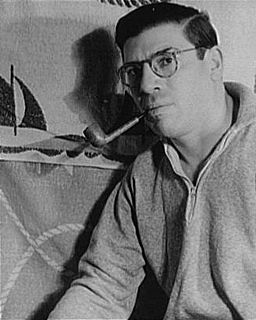A Quote by William Butler Yeats
How but in custom and in ceremony are innocence and beauty born?
Related Quotes
I feel almost as if I had been born in a vacuum of innocence, and then had to come to terms with the fact that actually, I was born into the middle of history - the rather grimy normality of the 70s, which did, indeed, retain some traces of human innocence, but were also girded about by the demons of experience.
The innocence of those who grind the faces of the poor, but refrain from pinching the bottoms of their neighbour's wives! The innocence of Ford, the innocence of Rockefeller! The nineteenth century was the Age of Innocence--that sort of innocence. With the result that we're now almost ready to say that a man is seldom more innocently employed than when making love.
The smell of good bread baking, like the sound of lightly flowing water, is indescribable in its evocation of innocence and delight... [Breadmaking is] one of those almost hypnotic businesses, like a dance from some ancient ceremony. It leaves you filled with one of the world's sweetest smells... there is no chiropractic treatment, no Yoga exercise, no hour of meditation in a music-throbbing chapel. that will leave you emptier of bad thoughts than this homely ceremony of making bread.
The beauty of a democracy is that you never can tell when a youngster is born what he is going to do with himself, and that no matter how humbly he is born, no matter where he is born, no matter what circumstances hamper him at the outset, he has got a chance to master the minds and lead the imaginations of the whole country.
Unlike any other business in the United States, sports must preserve an illusion of perfect innocence. The mounting of this illusion defines the purpose and accounts for the immense wealth of American sports. It is the ceremony of innocence that the fans pay to see - not the game or the match or the bout, but the ritual portrayal of a world in which time stops and all hope remains plausible, in which everybody present can recover the blameless expectations of a child, where the forces of light always triumph over the powers of darkness.
There are no moments more painful for a parent than those in which you contemplate your child's perfect innocence of some imminent pain, misfortune, or sorrow. That innocence (like every kind of innocence children have) is rooted in their trust of you, one that you will shortly be obliged to betray; whether it is fair or not, whether you can help it or not, you are always the ultimate guarantor or destroyer of that innocence.






































